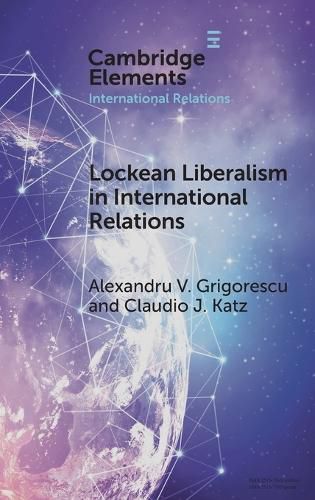Readings Newsletter
Become a Readings Member to make your shopping experience even easier.
Sign in or sign up for free!
You’re not far away from qualifying for FREE standard shipping within Australia
You’ve qualified for FREE standard shipping within Australia
The cart is loading…






This Element applies a new version of liberalism to international relations (IR), one that derives from the political theory of John Locke. It begins with a survey of liberal IR theories, showing that the main variants of this approach have all glossed over classical liberalism's core concern: fear of the state's concentrated power and the imperative of establishing institutions to restrain its inevitable abuse. The authors tease out from Locke's work its 'realist' elements: his emphasis on politics, power, and restraints on power (the 'Lockean tripod'). They then show how this Lockean approach (1) complements existing liberal approaches and answers some of the existing critiques directed toward them, (2) offers a broader analytical framework for several very different strands of IR literature, and (3) has broad theoretical and practical implications for international relations.
$9.00 standard shipping within Australia
FREE standard shipping within Australia for orders over $100.00
Express & International shipping calculated at checkout
This Element applies a new version of liberalism to international relations (IR), one that derives from the political theory of John Locke. It begins with a survey of liberal IR theories, showing that the main variants of this approach have all glossed over classical liberalism's core concern: fear of the state's concentrated power and the imperative of establishing institutions to restrain its inevitable abuse. The authors tease out from Locke's work its 'realist' elements: his emphasis on politics, power, and restraints on power (the 'Lockean tripod'). They then show how this Lockean approach (1) complements existing liberal approaches and answers some of the existing critiques directed toward them, (2) offers a broader analytical framework for several very different strands of IR literature, and (3) has broad theoretical and practical implications for international relations.